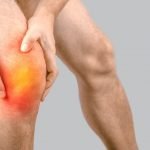Have you recently had surgery, or are you planning to have an operation soon? Are you wondering how to manage your post-surgery pain? Sore muscles, swelling, and nerve pain are just a few of the things you might experience after an operation. Believe it or not, you will probably plan for pain management before you even have your surgery.
Here’s how you can be prepared for postoperative pain treatment.
MEDICATIONS
For some surgery, over-the-counter medication may be appropriate for managing pain. These may include Tylenol, Aleve, and Advil. Doctors who know your medical history can recommend these, and you can have them on hand for your return from the hospital. Over the counter medications can help with both swelling and pain. It’s most effective when the pain is mild or moderate.
Your doctor may also prescribe opioid medications for more severe pain. It’s important to follow your doctor’s instructions carefully when taking them. Before prescribing opioids, your doctor will probably ask you several questions. For example, they may ask if you have a history of substance abuse, or if you have mental health conditions such as depression or schizophrenia.
In order to avoid addiction, doctors recommend taking opioids in as low a dose as possible. You shouldn’t take them along with any other medications unless instructed to by your doctor and avoid taking them with alcohol. It’s also important not to share them. A physician anesthesiologist will work with you to come up with a pain management plan for after your surgery. The level of pain you’ll experience will depend upon several factors, including the type of surgery, your genetics, and your medical history. If you have nerve damage, your doctor may recommend a numbing agent such as lidocaine.
You can expect your recommended and prescribed medications to take your entire medical history into account. Your doctor will likely start with lower-risk medication options, and move onto others if necessary. Your medication plan will be tailored to your unique history and needs.
ICING
Your doctor may recommend having some ice packs prepared for when you come home from the hospital. These can help minimize the swelling and reduce bleeding at the incision site.
It’s important to avoid placing the ice directly on your skin, which will still be tender. Instead, use a thin towel. You won’t want to ice the area for more than twenty minutes at a time, or more than 4-8 times per day. Take breaks of at least 15 minutes between icing. You’ll also want to remove the ice pack if you experience a painful, prickly sensation, or if your skin turns pink.
REST
Your doctor will tell you to rest after surgery, and this isn’t optional. Your body actually does most of its healing while you’re sleeping. Most doctors recommend you rest for at least a week after surgery. If you’re active, you may find yourself frustrated during your non-sleeping resting hours. This is a great time to catch up on books, call up friends, or watch movies you find relaxing.
The important thing is to avoid stressful activities during these times. Anxiety and depression can make your pain worse and even affect your immune system. This means it will take longer for your body to heal itself. Make sure that all of your activities are restorative while you’re recovering from surgery for the fastest recovery possible.
STEROID INJECTIONS
Steroid or Cortisone injections are often used to block back, neck, and nerve pain. Many patients who don’t find relief elsewhere get these injections once a week for a year or more. They can improve your pain and restore your range of motion.
PHYSICAL THERAPY
Many doctors recommend Physical Therapy as part of a postoperative pain management process. Physical therapists will help you remove pressure from your muscles and joints, allowing you to regain both your strength and range of motion.
Once you’ve had surgery, the area that’s been operated on tends to become very tight. An experienced physical therapist can help you target this area to help you make a complete recovery.
SYMPATHETIC BLOCKS
Sometimes, pain that doesn’t subside can be treated with sympathetic blocks. These blocks target the nerve managing the area that’s receiving the pain.
Sympathetic blocks reprogram the spinal cord and brain, reducing future pain. They can also help eliminate the need for ongoing opioid drugs.
NUTRITION
After your surgery, your doctor may recommend a diet of soft foods and lots of hydration. You won’t be putting undue stress on your body, and you’ll be reducing your chances of muscle fatigue. In addition, lots of water can help you eliminate toxins that might still be in your body because of the anesthesia.
What you’re eating, however, is also important to your recovery. For example, Vitamin C can help speed up the healing of wounds and protect cells from damage. Citrus fruits and juices can really help you get better quickly. Vitamin E, likewise, can help improve immune system function and blood flow to different parts of the body. Smoothies with avocados, mangos, or kiwifruit can help you get the recommended amount. Ask your doctor for more suggestions for food that will help you recover more quickly from post-surgical wounds and pain.
HEALING FROM POST SURGERY PAIN
Post Surgery pain is something many folks worry about before being operated on. However, with the right program and proper rest, you could be back on your feet in no time.
For excellent pain management options please contact Noracare Wellness today at 201-880-1400 and schedule an evaluation.




















